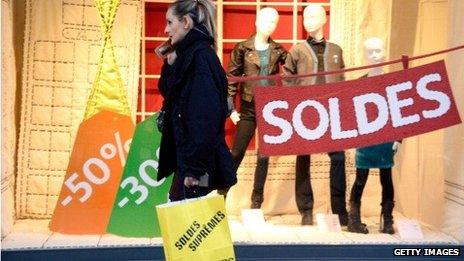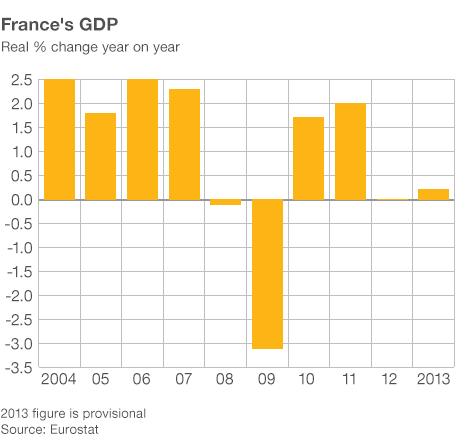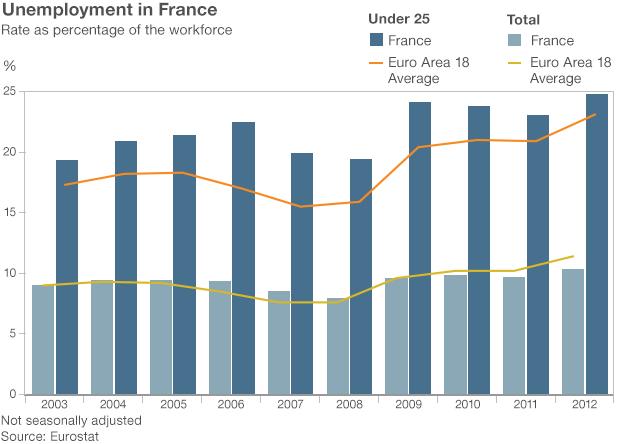French economy 'still looking weak'
- Published

The problem is clear enough.
France's unemployment rate is stubbornly high, just below 11%, and economic growth is persistently weak.
The French economy is still slightly smaller than it was at the beginning of 2008, just before the downturn set off by the global financial crisis.
Six years on, while some economies including the US, UK and Germany, have managed some relatively strong growth, France is still looking weak.
The most recent data, for the third quarter of last year, show the French economy shrinking again.
What does France need to do to inject some economic vigour into its veins?
More cuts
Critics of French economic policy call for a smaller state, and a reduction in the burden faced by business from tax and regulation, especially in the labour market. It could also do with getting the government's debts down.
President Francois Hollande certainly touched all these bases during a speech on Tuesday in which he promised to revitalise the economy.
He promised another 50bn-euros (£41.5bn; $68bn) of spending cuts, equivalent to 4% of the total. Now, public spending is equivalent to 56% of national income, the second biggest share in the eurozone.

Cuts of that scale could make a difference, but the French public sector would still be large.
Economic growth could perhaps do more to reduce the share of the state in the economy.
One of his central proposals to stimulate growth was a cut of 30bn euros in social security costs for business. He also promised to simplify the procedures that businesses have to deal with - throughout their lifecycle, from formation to liquidation.
On government finances, France has already taken steps to bring down its borrowing needs.
The International Monetary Fund says that most of the effort has been in the form of higher taxes, and it argues that so far as further adjustment is needed, it should be in the form of spending cuts.
What all this means in practice will obviously depend on the detail. There wasn't much of that in his remarks on Tuesday.
It will also depend on how effectively it's all implemented, which will in turn raise some political challenges.
German parallels
It does all look like a rather surprising agenda for a left-of-centre political leader to pursue - in essence a strategy of more markets and less government. But then, something similar has happened in a number of European countries.
The most obvious comparison is across France's eastern border in Germany.
Gerhard Schroeder, a Social Democrat, was Chancellor around the turn of the century, a time when the country was seen by some as the "sick man of Europe ".
He set off reforms to the jobs market that many commentators credit with reviving the German economy.
The comparison is not exact. Germany's public sector was a much smaller share of the GDP, than the French equivalent today. But there are some striking parallels nonetheless.

- Published14 January 2014